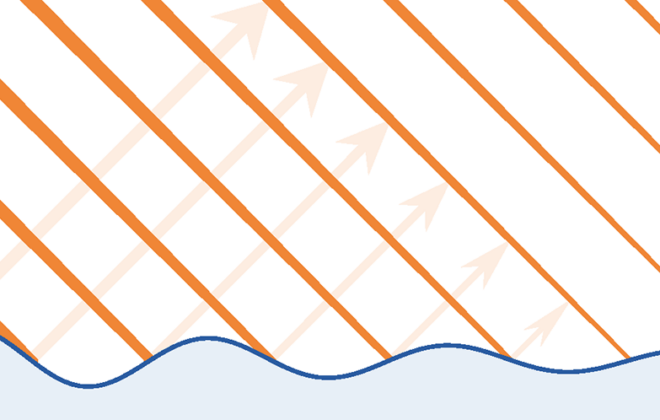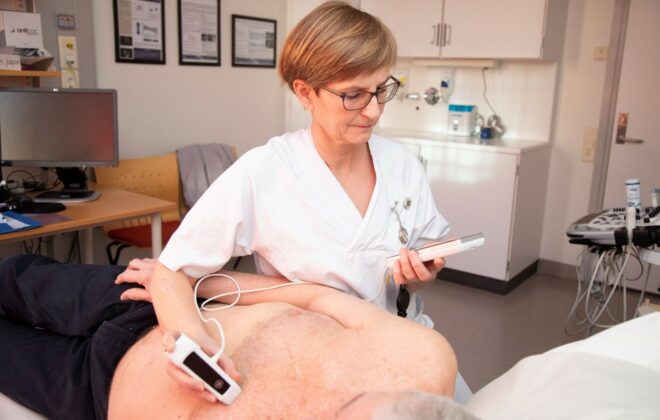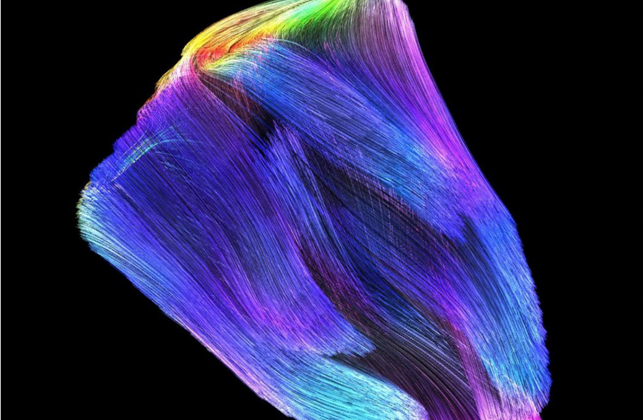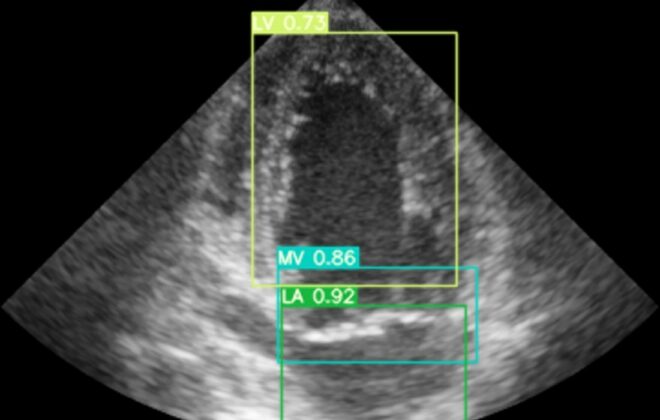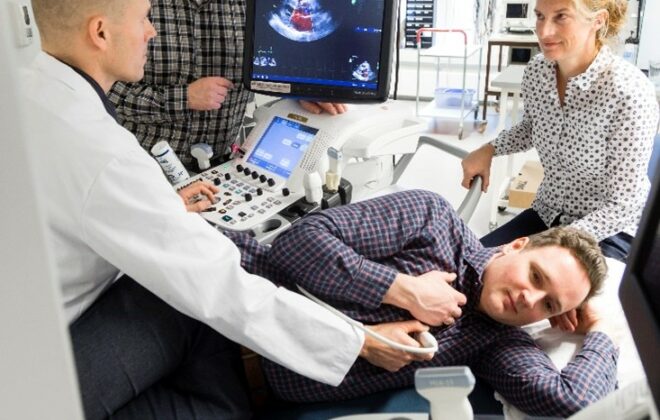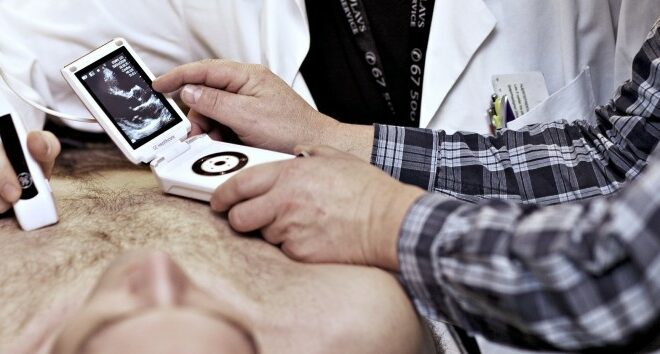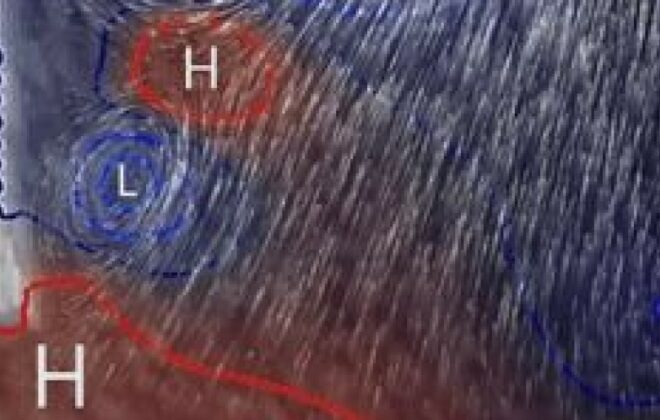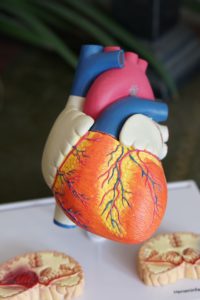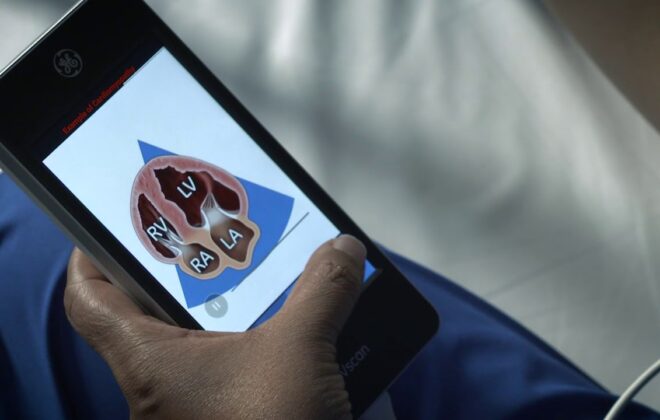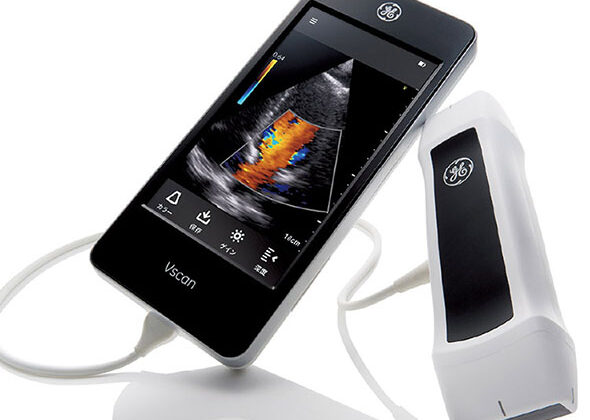Blue skies innovation
Basic research (or blue skies research) may be defined as research to understand the basic mechanisms of nature. Such research is often regarded as curiosity driven and defined by scientists.
Can AI on hand-held ultrasound help diagnose heart failure?
Artificial intelligence software and telemedical transfer of images have shown promising results in aiding users to evaluate heart function, but in our study the artificial intelligence software on hand-held ultrasound devices alone is not reliable enough to evaluate heart function for general practitioners.
Uncovering stiff or leaky heart valves
Modern ultrasound scanners combined with technological developments at NTNU may improve diagnostics for dis- eases related to narrow or leaky heart valves. Advanced 3D Doppler and high frame rate imaging makes it possible to visualise cardiac flow and minor movements of the heart’s muscular tissue more precisely, according to PhD Candidates Torvald Espeland and Erik Andreas Rye Berg.
Taking heart imaging out of the hospital with AI
You have certainly heard about Artificial Intelligence (AI), but have you ever wondered what it is used for? If not, an excellent example of Artificial Intelligence is self-driving cars. The car computer acts as a brain, and cameras as eyes. But this is just a…
In-probe receivers for medical ultrasound systems
There are two important steps when solving any problem: first, knowing there is one and, subsequently, finding out how to solve that problem. An example could be, in our case, having an electronic image of the heart and, through the analysis of doctors (cardiologists) or via artificial intelligence (AI), finding both the problem and solution.
(Not) science fiction at the GP’s
Those who grew up with Star Trek, watched the ship doctor using something akin to a mobile phone, which after one swipe could tell you what was wrong with the patient. This is no longer pure science fiction – at least not for diagnosing heart…
From meteorology to heart diagnostics
Weather forecasts have become a regular part of every day life, and much of the reliability behind these come from advanced techniques for combining weather observations with models based on physical principles. Using the same methods, we can help doctors discover heart disease at earlier…
The importance of treating ischemic heart disease fast!
Treatment of ischemic heart disease has improved considerably the last decades. Not only the treatment itself, but also timing of treatment has been of great importance for this success. Nevertheless, ischemic heart disease is still the leading cause of death in the world.
How can we improve cardiac diagnostics at the GP’s office?
Cardiac diseases are a major health concern and many of the patients in a general practitioner’s (GPs) office have heart conditions. Hand-held ultrasound device (HUD) can improve the GP’s diagnostic possibilities. We want to evaluate if a training program with focus on practical ultrasound skills can help the GP’s to correctly diagnose certain heart conditions by using HUD. If successful, unnecessary referrals could be avoided and patients in need of specialist care would avoid delay in diagnosis and treatment.
Could your local doctor diagnose heart disease using a handheld ultrasound device?
Many potential heart patients that are referred to specialists, turn out not to need specialist care. If general practitioners (GPs) could use handheld ultrasound devices with built-in diagnostic tools, could this improve patient outcome and reduce cost for the health services?

